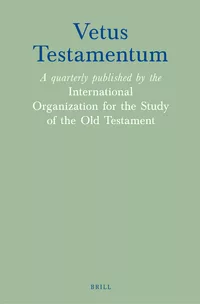https://doi.org/10.1163/15685330-bja10155
이 논문은 시편 40편이 법과 인간 자아의 관계에 관한 복합적이고 폭넓게 증언된 담론을 어떻게 반영하는지를 다룬다. 이 담론은 율법과 인간의 번영 및 완전성 가능성의 관계(신 30:6–14, 렘 31:31–34, 시 19, 지혜서 6·9장, 필로 등)와, 반대로 완전성에 대한 비관적 견해(창 6:5, 8:21, 전 9:3)까지 포괄한다. 시편 40편은 찬양과 탄식을 결합하며, 하나님의 율법을 예전적 논리의 핵심 요소로 제시한다. 본 논문은 시편 40편 연구의 문학사적·형식비평적 쟁점을 정리한 뒤, 이 본문이 렘 31장과 문학적 연관이 있든 없든, 두 텍스트가 율법과 인간 번영의 관계에 대해 상이한 논리를 보여준다고 주장한다. 이를 통해 고대 유대 사회에서 법 담론과 탄식시의 관계에 대한 학문적 이해를 확장한다.
This paper discusses how Ps 40 reflects a widely attested and complex discourse on how legalities relate to the human self—a discourse involving matters such as law’s relation to human flourishing and perfectibility (e.g., Deut 30:6–14; Jer 31:31–34; Ps 19; Wis 6 and 9; Philo; for others views of perfectibility, cf. Gen 6:5; 8:21; Qoh 9:3). Psalm 40 combines praise and lament, with divine law as a key factor in this liturgical text’s logic. After clarifying literary-historical and form-critical issues in studies of Ps 40, it will be argued that whether or not there is a literary relationship to Jer 31, these texts display divergent logic on law’s relationship to human flourishing. The paper contributes to scholarly understanding of legal discourse and lament in Jewish antiquity.







